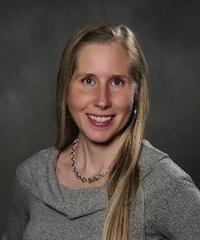
Jessica Lasky-Su, DSc, MS
Dr. Lasky-Su has been a leader in applying metabolomics research to epidemiology, covering a range of chronic diseases over the life course, with a focus on respiratory outcomes (e.g. asthma). Much of her work has focused on “integrative metabolomics” - the integration of other omics with using a metabolomic-centric perspective to study complex diseases. With integrative metabolomics as an emerging field, Dr. Lasky’s scholarship has contributed broadly, with peer-reviewed publications that focus on a range of disease outcomes (cancers, respiratory, ocular, infections, metabolic, neurodevelopment/mental health) and exposures (air pollutants, PFAS, nutrition, exercise) that may have an impact on health over the life course. Her investigative success is also demonstrated with >225 peer-reviewed publications. To date, she has been invited to give > 40 national and international talks. Dr. Lasky-Su has recently expanded her focus to study multiomics over the life course in the context of aging using the Mass General Brigham (MGB-Biobank), where she has generated a large, curated biobank cohort with multiomic data. As the most recent past president of the Metabolomics Society – the largest metabolomics society in the world – and the chairman of the NIH’s Consortium of Metabolomics Studies (COMETS) consortium – the largest international consortium of prospective metabolomics cohorts – over the past four years, her leadership in this area is unparalleled. She has also spearheaded new efforts, including initiating STROBE-metabolomics to provide reporting guidelines in this area and the Metabolomic Epidemiology Task Group to define and formalize this emerging field of study. In addition, Dr. Lasky-Su has extensive funding in multiomics; she is the PI/MPI of 4 current NIH R01s in metabolomics, the PI on multiple private grants, and the Consortium PI several R/U NIH grants. Her success is also reflected in the success of her mentees and co-mentees who have received K grants and gone on to have successful research careers, with some achieving a rank as high as full professor.